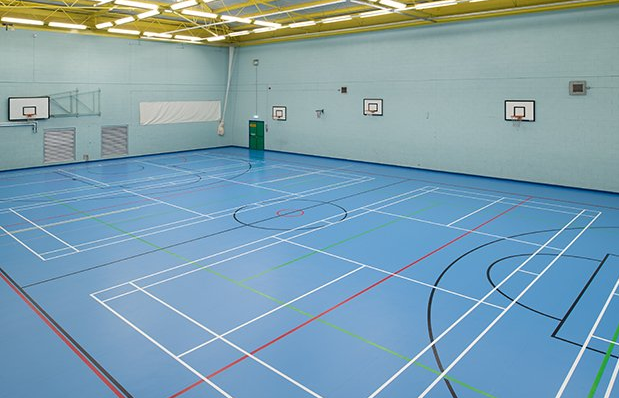When it comes to choosing a flooring material, PVC (polyvinyl chloride) and polypropylene are two popular choices because they are durable, versatile, and cost-effective. However, determining which flooring material is better for your specific needs requires a careful evaluation of their respective features and benefits. In this article, we'll compare PVC and polypropylene flooring to help you make an informed decision.

Introduction
Both PVC and polypropylene flooring are synthetic materials that are commonly used in a variety of residential, commercial, and industrial applications. While they share similarities in terms of durability and maintenance, there are also distinct differences that may influence your choice between the two options.
Durability
PVC Flooring:
PVC flooring is known for its excellent durability and resistance to moisture, chemicals, and abrasion. Because it can withstand heavy foot traffic and frequent cleaning without deteriorating, it is a popular choice for high-traffic areas such as commercial spaces, healthcare facilities, and schools.
Polypropylene Flooring:
Polypropylene flooring also has good durability and resistance to moisture and chemicals, making it suitable for both indoor and outdoor applications. However, it may be less resistant to heavy loads and abrasion than PVC flooring, making it more suitable for light-duty environments.
Installation and Maintenance
PVC Flooring:
PVC flooring comes in a variety of forms, including tiles, sheets, and planks, with the option of glued or click-lock installation. It is relatively easy to install and requires minimal maintenance, typically requiring regular sweeping and occasional mopping to keep it clean and in good condition.
Polypropylene Flooring:
Polypropylene flooring is often used in the form of interlocking tiles or modular flooring systems and is easy to install, requiring no adhesives or specialized tools. It is also easy to maintain, requiring only simple sweeping and occasional washing to clean.
Environmental Considerations
PVC Flooring:
While PVC flooring offers excellent performance and durability, it is worth noting that it is made from a synthetic plastic material that can have an impact on the environment. PVC production involves the use of chlorine, a chemical compound that releases harmful emissions during manufacturing and disposal.
Polypropylene Flooring:
Compared to PVC flooring, polypropylene flooring is considered more environmentally friendly because it is made from recyclable thermoplastic polymers. It also has lower toxicity and releases fewer harmful chemicals during production and use, making it a preferred choice for environmentally conscious consumers.
Cost and Affordability
PVC Flooring:
PVC flooring is generally more affordable than polypropylene flooring, making it an affordable option for budget-conscious consumers. Its durability and low maintenance requirements also contribute to long-term cost savings over the life of the flooring.
Polypropylene Flooring:
Due to the higher material cost and manufacturing process of polypropylene flooring, it may be slightly more expensive than PVC flooring. However, for some customers, its durability and environmental benefits may justify the higher initial investment.
Conclusion
In summary, both PVC and polypropylene flooring offer unique benefits and considerations, depending on your specific needs and preferences. While PVC flooring excels in durability, longevity, and affordability, polypropylene flooring stands out for its environmental friendliness and ease of installation. Ultimately, the choice between PVC and polypropylene flooring comes down to factors such as application, budget, and environmental concerns.
For help selecting the right flooring material or finding a reliable supplier, contact us.